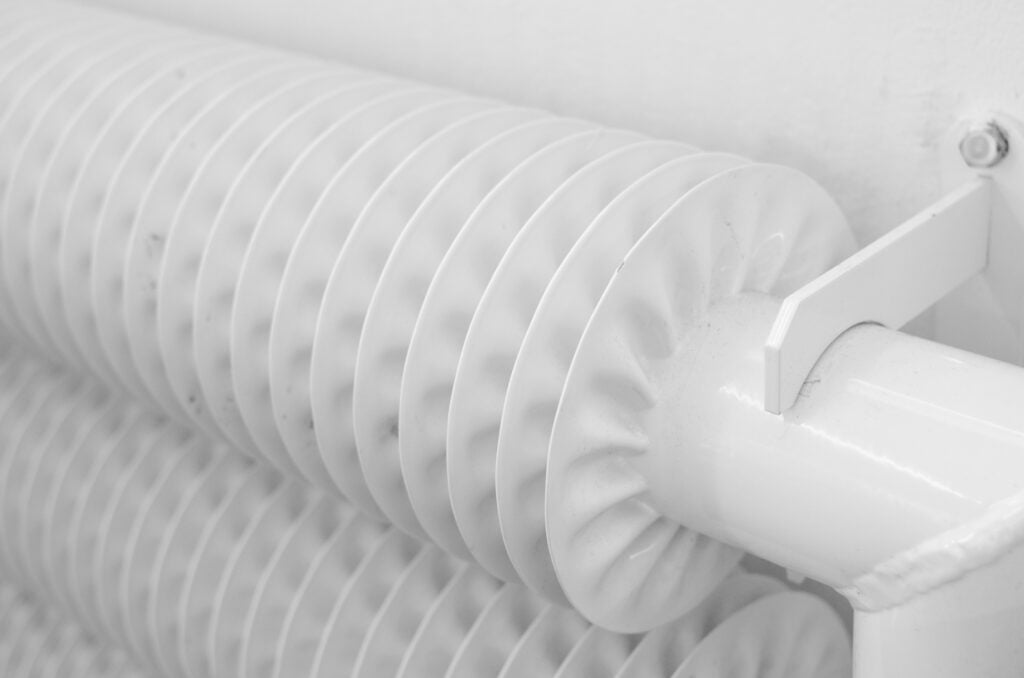When considering upgrading your heating system or installing new radiators, you will want to consider which radiators work best for your lifestyle.
Most homeowners will consider whether central heating radiators or electric radiators are more cost effective, more eco-friendly, or better quality.

Central Heating Radiators
Control and Convenience: An advantage of central heating radiators is that you can control all the radiators from one central thermostat. You can also programme your thermostat to turn the radiators on and off at different times on different days. This makes central heating radiators a thoroughly convenient option.
Advancing Styles: For the interior design conscious, rest assured that central heating radiator designs have a lot to offer. You only have to view the wide collection of Stelrad designer radiators to see that there is a size, style and even colour for every design scheme.
Health: According to some studies, an environment with a regular temperature throughout is better for the respiratory system. Another benefit of even, sustained warmth throughout your home is that it reduces condensation and mould growth which helps protect your health as well as your home and belongings.
Getting More Eco: Though there is criticism about the environmental impact of central heating, the advancements in eco-friendly, efficient boilers have helped to mitigate some of these concerns. Choosing gas central heating over oil central heating can also help reduce the impact. There are more eco-friendly radiators too, designed to give maximum heat with minimum energy.
Property Value: Most property seekers will still be deterred by a home that does not have a central heating system. Unless you are opting for impressive, advanced, eco-friendly systems instead, you will want to consider the effect on the resale value of your home.

Electric Radiators
Easy installation: Electric radiators are either plugged into a socket or hardwired. Using external sockets does not require an electrician and allows you to move the radiator if you change your mind. Hardwiring requires an electrician but leaves your existing sockets free and eliminates unsightly cables.
Individual Power: If the boiler breaks, your whole system, including central heating radiators is out of action. With electric radiators, they are not dependent on one another.
Room by Room Control: Advances in programmable electric radiators let you set each one to a different temperature and decide when they turn on and off. With central heating radiators, you do have limited control over temperature by adjusting individual valves, but generally your system is either all on or all off.
The Sound of Silence: Electric radiators are silent. The gurgling, clanking of radiators in need of bleeding or the central heating getting going in the morning is not an issue with electricity. Plus, a fully electric radiator never needs bleeding.
Eco-friendly Heat: Because they are not connected to a gas or oil burning boiler, electric radiators are zero emissions appliances. If you’re utilising solar panels for your home’s electricity, electric radiators are even more environment friendly.
Running Costs: The assumption is that electric radiators have higher running costs. This is not always the case. Even a new boiler is only 90% efficient. An old boiler can be far less so. Therefore, though the cost per unit of gas may be less, some of that is going to waste. Just consider the heat lost through poorly insulated pipes, plus the resulting turning up the thermostat, and you’re saving money by using a more efficient, electric system.


2 comments
Food for thought. There is probably a lot of heat wasted in homes that have 3 bedrooms but are occupied by only 1 or 2 people. In those cases, electric would seem a sensible choice.
I think central heating systems are more efficient and beneficial when compared to electric radiators.
Also, you can install it for free through a government scheme.
Check your eligibility at the below link:
https://btsgrants.uk/first-time-central-heating-grants/